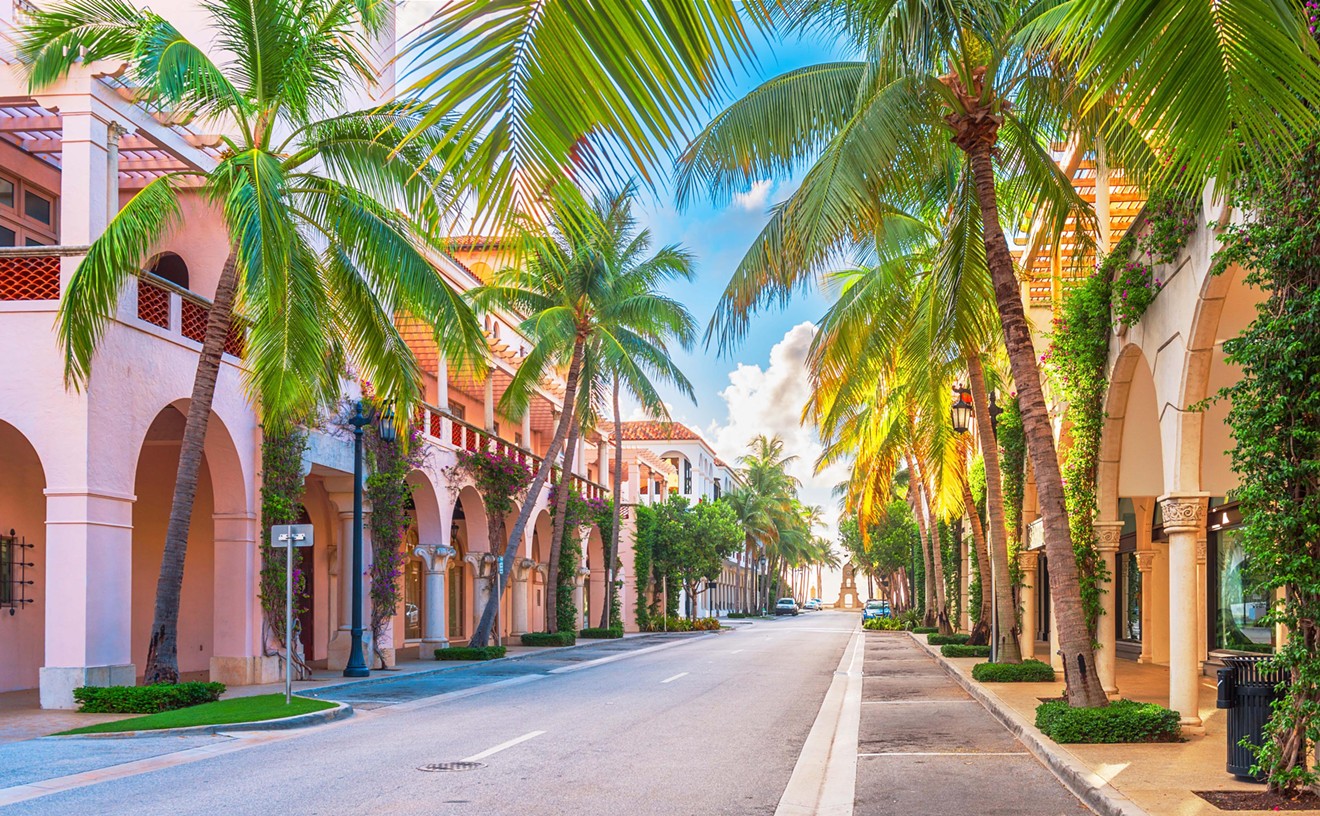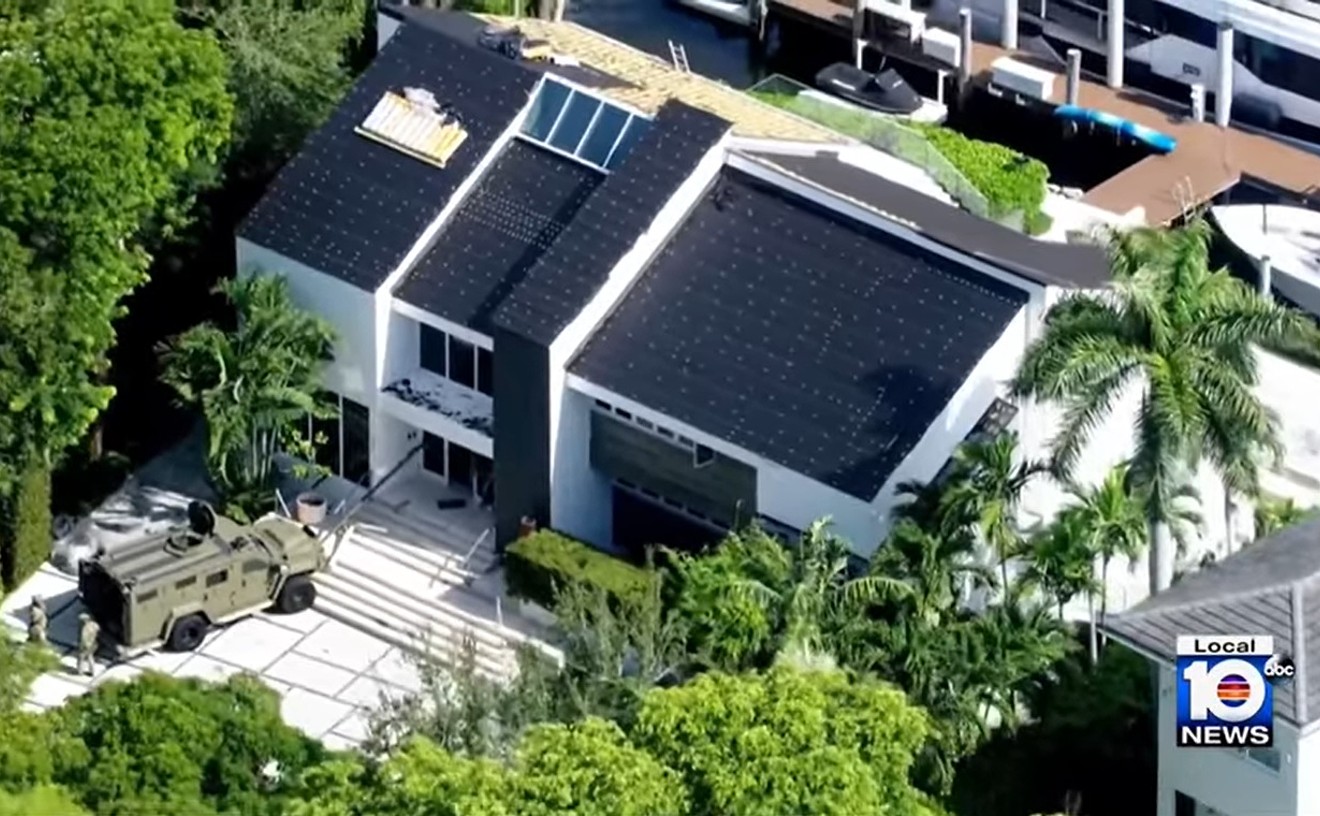Commissioners Alex Diaz de la Portilla, Ken Russell, and Manolo Reyes all voted no on the idea on Thursday afternoon. But less than two hours later, Diaz de la Portilla asked to bring up the topic again as a new item and changed his vote.
City staff now will study a pilot program to create a camp at Virginia Key and to study other possible sites for the "chronically homeless."
Staff at the Virginia Key Outdoor Center, a recreational service on the island, posted last night on Instagram that they were "devastated" by the decision on an item that had ostensibly been put to bed.
Original story is below:
While the rest of Miami worries about winding up on the street, the City of Miami has a new solution for the existing unhoused population: Keep them out of sight and out of mind!
At today's (July 28) Miami City Commission meeting, officials will discuss creating city-run "transformation and transition zone" camps for unsheltered people. A PDF presentation for the discussion, obtained by New Times, proposes five options for sites of possible encampments. But the city staff's "optimal" site is Virginia Key, a barrier island separated from the rest of the city by a mile of water in Biscayne Bay and a location featured in the 1994 Jim Carrey masterwork Ace Ventura: Pet Detective.
Our own Devil's Island, if you will.
The city has been at odds with Miami's homeless population in the past year; District 3 Commissioner Joe Carollo in particular has sponsored several schemes aimed at cracking down on homeless people, sparking ire from homeless advocates.
Last October, commissioners passed a Carollo-backed ordinance to ban homeless encampments and direct police to destroy existing tents and camps around the city, prompting an ongoing lawsuit against the city. Carollo also pushed through a resolution to create an "Adopt-A-Homeless" program to aid residents who want to foster full-grown homeless adults, after many observers thought he was just joking.
The "transition camp" is the latest in the chain of eyebrow-raising homelessness solutions in the nation's least-affordable housing market.
Entitled, "Ease the Burden, Transition With Dignity," the presentation prepared by Miami's Department of Human Services taps Virginia Key as the top pick for a camp, citing its secluded location, its distance from any residential buildings, and the lack of development plans for the area.
As it happens, Virginia Key is also home to historic Virginia Key Beach Park and the Virginia Key Outdoor Center and is one of the City of Miami's few naturally preserved outdoor spaces.
Perhaps not surprisingly, Esther Alonso, the outdoor center's owner and operator, isn't wild about the prospect of a homeless camp at the park.
"I think it's a terrible idea. This is one of the most popular parks in the system, and it's an environmentally sensitive area," Alonso tells New Times, adding that she first heard about the proposal this week. "This is a tragedy waiting to happen."
The presentation offers four other options for "transformation zones": a fenced-in lot underneath I-95 at NW 71st Street and NW Fifth Place in Little River; an empty lot at 2451 NW Seventh Ave. in Allapattah; another empty lot at NW Sixth Avenue and NW Sixth Street in southwest Overtown; and two municipal parking lots — one underneath the concrete spaghetti strands that pour traffic on and off I-95 downtown, the other beneath I-95 just west of the Publix at SW Third Avenue and SW Seventh Street.
Shelter options at those would-be camps include tiny homes, dormitory tents, and Foldum shipping containers — which, the presentation helpfully notes, are "visually less appealing" but "can be painted to add individuality."
Like the shipping-container solution, each option comes with its own associated pros and cons noted in the presentation, with shelters like the tiny homes notching a con because they "can be perceived as a more permanent dwelling."
Reached by New Times by phone on Wednesday, Department of Human Services director William Porro declined to comment about the discussion item.
"Tomorrow we'll be discussing it publicly," Porro said.
City Commissioner Ken Russell, whose district includes Virginia Key and who opposed the city's homeless-encampment ban, tells New Times that city-run homeless transition camps are not the right way to eliminate homelessness in the Miami.
"By working with the partners we have — nonprofits who are experts and place homeless care as their main priority — we can shelter Miami's remaining homeless persons," Russell says. "This idea represents a liability to the city, it's not in our wheelhouse, and Virginia Key is a nature preserve."
The transition camp presentation is part of a discussion item on the agenda and not a resolution, meaning no vote is planned on its content, but commissioners could direct the city manager to take action on the item.













